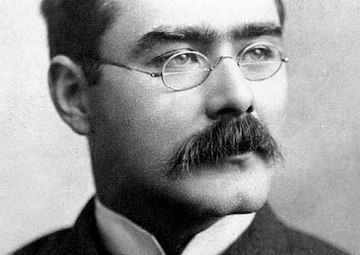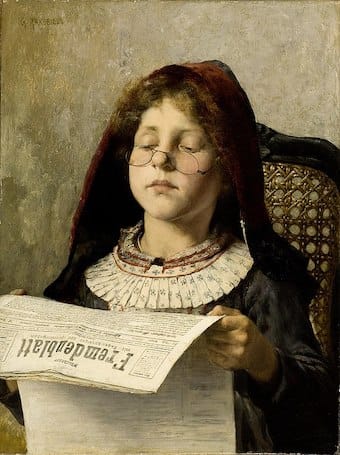Introduction
The euphoria that followed the Allied victory over Nazi Germany four years earlier had not clouded schoolmaster NL Clay’s wits. In Straightforward English (1949), a guide ‘designed to help an ordinary person to write a clear message’, he told the British public that we must speak plainly and never be satisfied with slogans or jargon, or we would find ourselves walking down the same unhappy road as the Germans.
TODAY more than ever we need writers of straightforward English. We need them if we are to preserve the heritage of plain prose against unceasing attacks by powerful enemies — shoddy thinking, speech appealing to prejudice, mass-entertainment with all its supporting printed matter, snobbery, and what deceives the uncritical into thinking it is ‘fine writing’. We particularly need them because of the value of clear thinking: ‘They who are learning to compose and arrange their sentences with accuracy and order are learning at the same time to think with accuracy and order.’*
If ‘freedom’ and ‘democracy’ are to be more than catchwords, clear communication must be the rule, and not the exception. In a totalitarian state it may be sufficient for the dictator and his henchmen to be able to use straightforward language. Do we want a society in which placid masses take their orders from bosses? The alternative to government by force is government by persuasion. The latter must mean that the governed can talk back to the governors – that Tom Smith can put a pointed question to his M.P., can write an intelligible letter to the editor of a newspaper, and can exchange views with his work-mates, in speech or writing. Tom Smith and his wife are better citizens if they have learned to value and practise straightforward English.
* From Lectures on Rhetoric by the Revd Hugh Blair, the first Professor of Rhetoric at the University of Edinburgh. See Order and Method.
Précis
Just as dictators have a vested interest in keeping their public inarticulate, so too the ability to write and speak clearly is essential to a free and democratic society. Ordinary people can serve their country by learning to speak and write in good, plain English, and by using it to stay informed and to hold their government to account. (59 / 60 words)
Just as dictators have a vested interest in keeping their public inarticulate, so too the ability to write and speak clearly is essential to a free and democratic society. Ordinary people can serve their country by learning to speak and write in good, plain English, and by using it to stay informed and to hold their government to account.
Edit | Reset
Variations: 1.increase the length of this precis to exactly 65 words. 2.reduce the length of this precis to exactly 55 words. 3.introduce one of the following words into the precis: besides, despite, may, not, or, otherwise, ought, until.
About the Author

Norman Llewellyn Clay (1905-1991) was a Yorkshire schoolmaster who wrote a series of textbooks for schools, colleges and the home in a career that stretched from the 1920s to the 1960s. He taught English at Wath-on-Dearne Secondary School, and later at Ecclesfield Grammar School near Barnsley; his wife Hilda, whom he married in 1930, was a classicist and a fellow-schoolteacher. Clay’s books ranged from classroom courses in oral and written composition through to anthologies of prose and poetry, brief plays adapted from literature, and guides to better writing for adult learners. He also left behind a mass of unpublished material: stories, poems, guides to English domestic history and the experience of ordinary women, and studies of Jane Austen’s heroines. Clay championed ‘straightforward English’ as an antidote to the slogans and manipulative propaganda which plague every society, and hoped that his textbooks would help a new generation to learn more of the world they lived in, free their imagination, and do their democratic duty by holding their governors to account.
Archive
Find this and neighbouring posts in The Archive
Find this post and others dated 1949 in The Tale of Years
Tags: The English Language (7) Extracts from Literature (614) Political Extracts (142) History (956) The ‘New Elizabethan’ Era (2) Liberty and Prosperity (169) N.L. Clay (2)
Word Games
Sevens Based on this passage
Suggest answers to this question. See if you can limit one answer to exactly seven words.
Why does a totalitarian government have no need for an articulate public?
Suggestion
Because it expects unquestioning obedience, not discussion. (7 words)
Variations: 1.expand your answer to exactly fourteen words. 2.expand your answer further, to exactly twenty-one words. 3.include one of the following words in your answer: if, but, despite, because, (al)though, unless.
Jigsaws Based on this passage
Express the ideas below in a single sentence, using different words as much as possible. Do not be satisfied with the first answer you think of; think of several, and choose the best.
Dictators give orders. They expect them to be obeyed. No discussion is allowed.
Spinners Find in Think and Speak
For each group of words, compose a sentence that uses all three. You can use any form of the word: for example, cat → cats, go → went, or quick → quickly, though neigh → neighbour is stretching it a bit.
This exercise uses words found in the accompanying passage.
1 Compose. Democracy. Need.
2 Communication. Fine. Tom.
3 Appeal. Editor. Use.
Variations: 1. include direct and indirect speech 2. include one or more of these words: although, because, despite, either/or, if, unless, until, when, whether, which, who 3. use negatives (not, isn’t, neither/nor, never, nobody etc.)
Add Vowels Find in Think and Speak
Make words by adding vowels to each group of consonants below. You may add as many vowels as you like before, between or after the consonants, but you may not add any consonants or change the order of those you have been given. See if you can beat our target of common words.
flls (6+1)
See Words
falls. fells. fillies. fills. flails. follies.
fellas.
You are welcome to share your creativity with me, or ask for help with any of the exercises on Clay Lane. Write to me at this address:
See more at Email Support.
If you like what I’m doing here on Clay Lane, from time to time you could buy me a coffee.
Buy Me a Coffee is a crowdfunding website, used by over a million people. It is designed to help content creators like me make a living from their work. ‘Buy Me a Coffee’ prides itself on its security, and there is no need to register.






